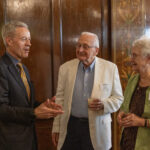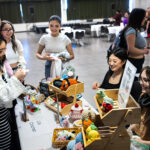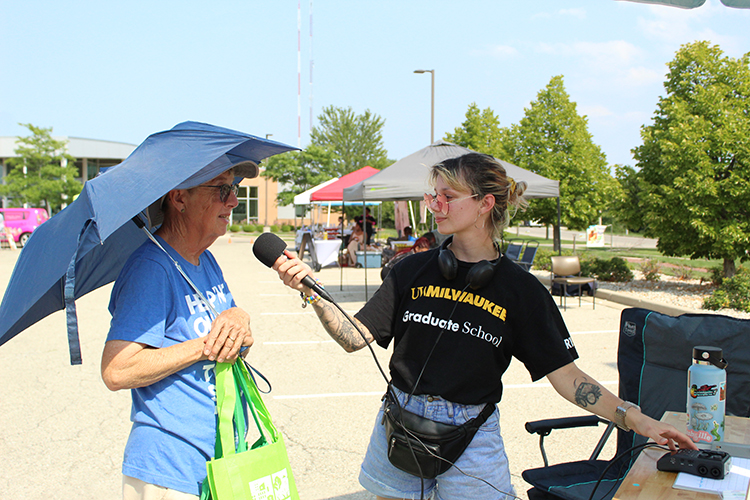
Jessie Thompson (right) talks with a shopper as part of the Story Cart Project this summer. UWM graduate students traveled with a mobile “story cart” to 27 Milwaukee locations to question strangers about food to collect stories about how people connect through food. (Photo courtesy of the Center for 21st Century Studies)
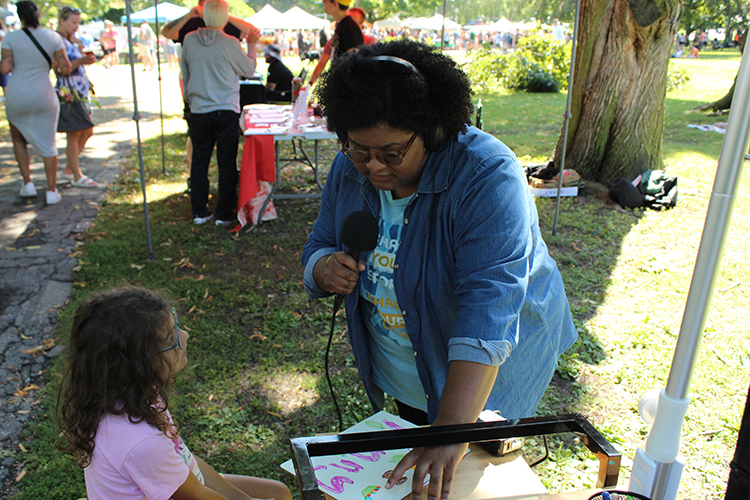
Jamee Pritchard asks a young visitor to the South Shore farmers market about her favorite foods. (Photo courtesy of the Center for 21st Century Studies)
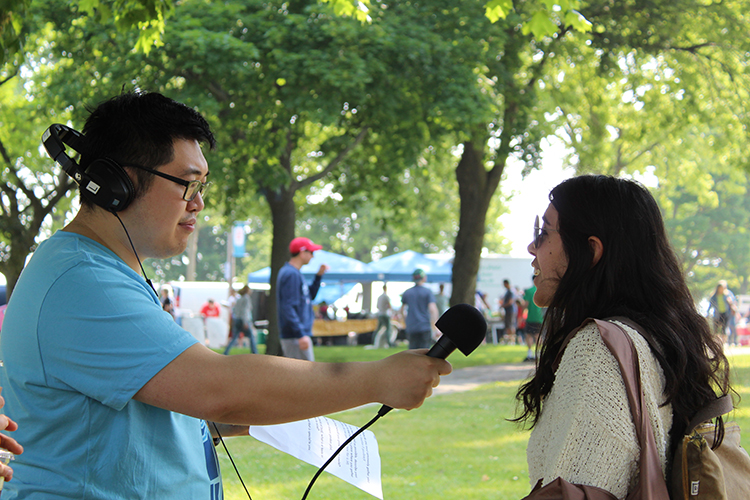
Yuchen Zhao questions a farmers market shopper about where she buys her food. Other questions included how they get to the places where they buy food, and what meaningful and trusting connections food and meals provide. (Photo courtesy of the Center for 21st Century Studies)
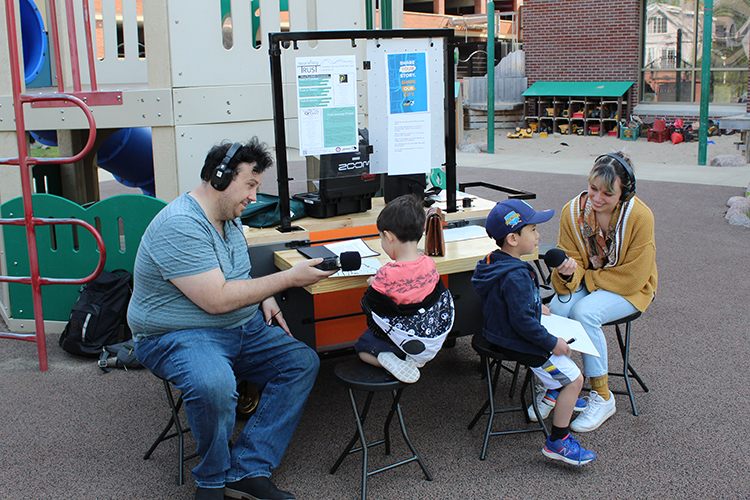
AJ Segneri (left) and Jessie Thompson have lively conversations about a subject that kids are experts on – food. (Photo courtesy of the Center for 21st Century Studies)
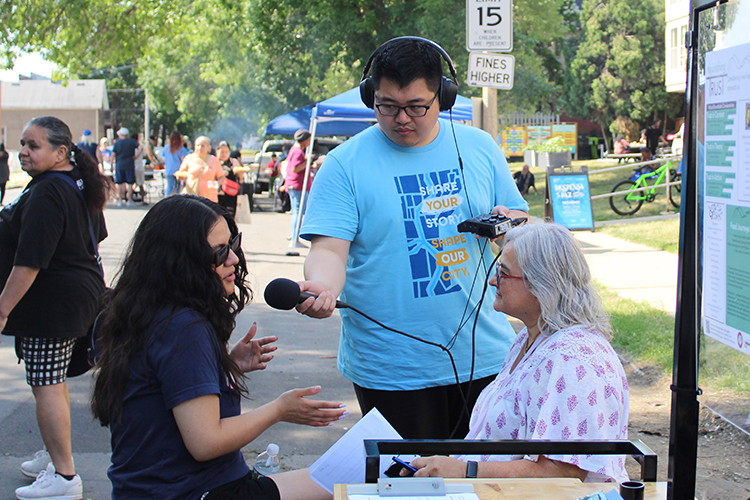
Yuchen Zhao records the interview between a participant and Spanish translator Maria Julia Baldor (right). The Story Cart interviewers visited grocery stores, farmers markets and food pantries across the city. (Photo courtesy of the Center for 21st Century Studies)
From wedding dinners to farmers markets, food has a way of connecting people. It’s the ultimate common denominator.
To explore that, UWM’s Center for 21st Century Studies embarked on the Story Cart Project, in which graduate students and researchers traveled with a mobile cart to 27 Milwaukee locations to question strangers about food.
At grocery stores, farmers markets and food pantries, they invited participants to talk about food. Questions included where they usually gather their food, how they get to those places, and what meaningful, trusting food connections look like to them.
“There are historical, sociological, political and environmental conditions that impact why we do the things that we do day-to-day,” said Nicole Welk-Joerger, who directed the project. “So those impacts will be incorporated into the stories we collect.”






